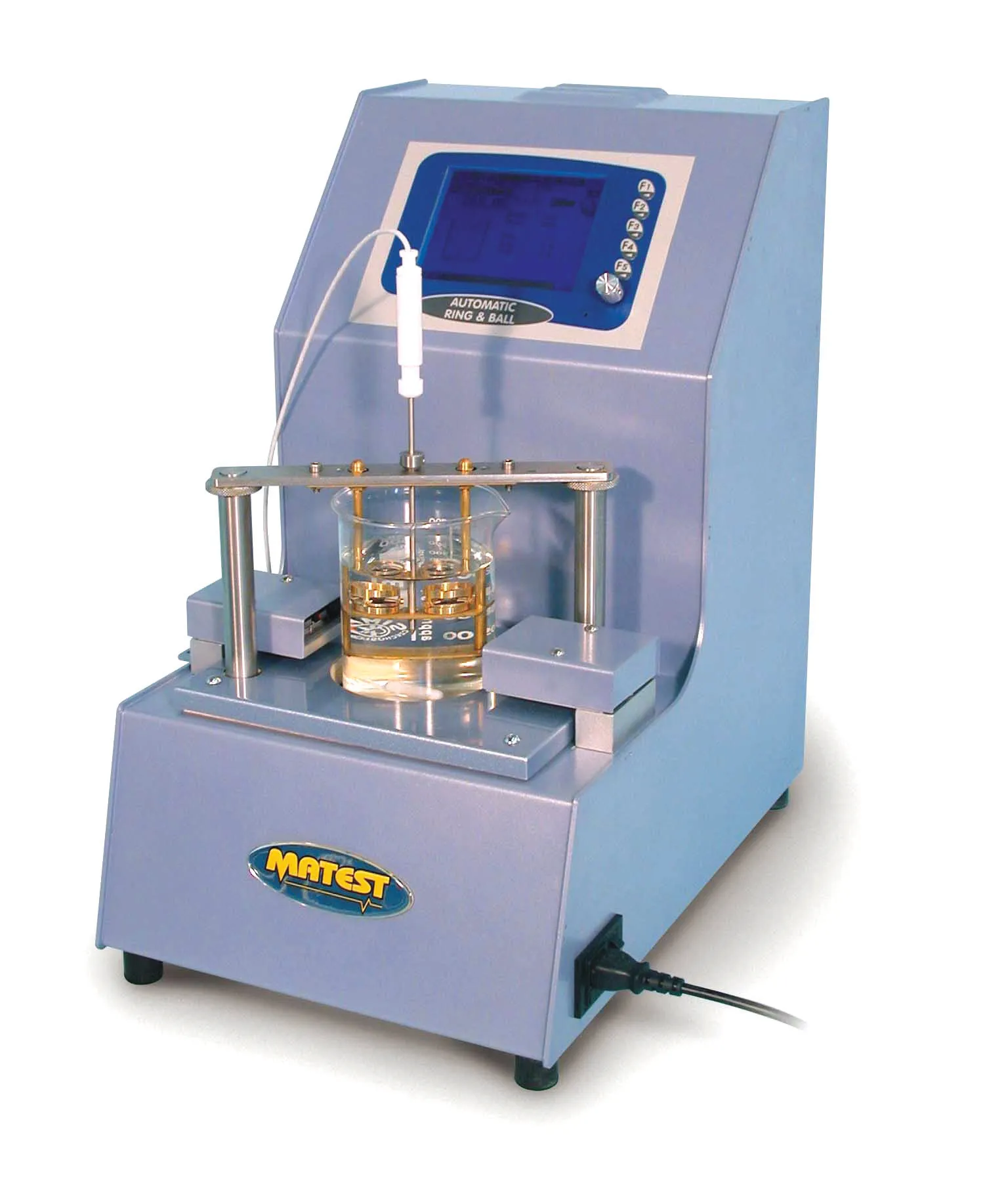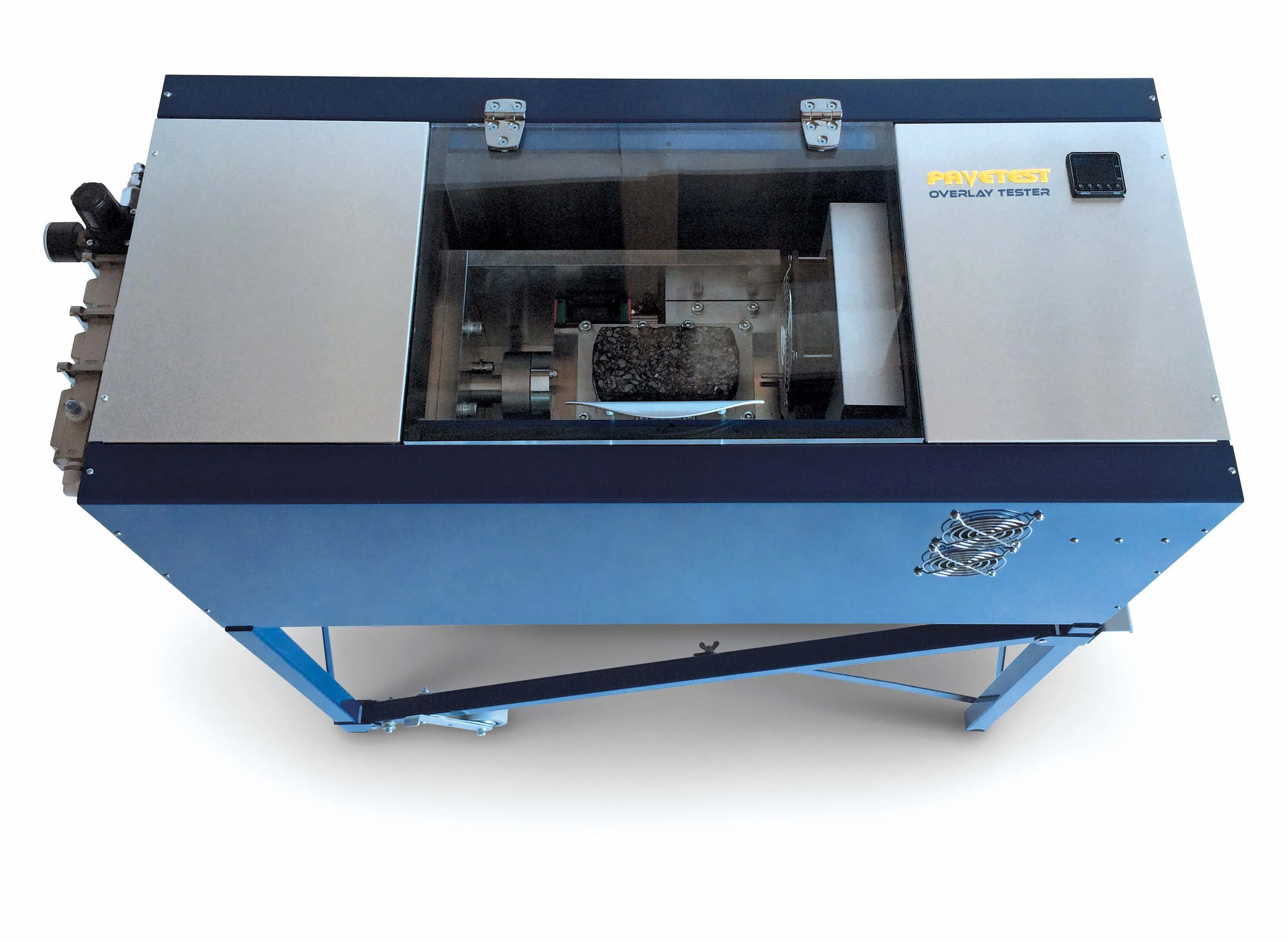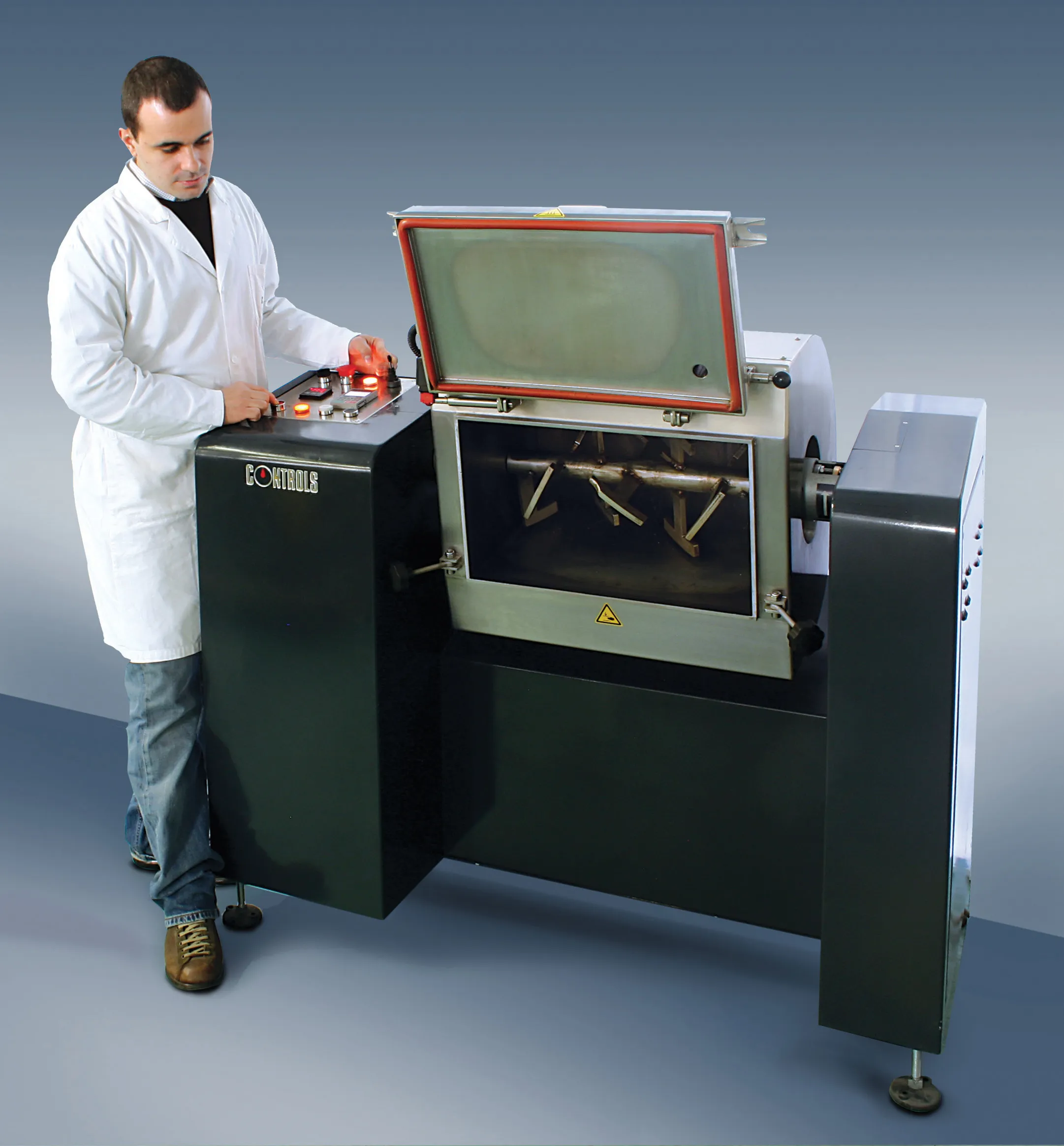Big increases in traffic mean that today highways are under greater pressure than ever, and materials have to perform to increasingly higher standards. Modern highways, particularly in and around major cities, are tested like never before, and it is essential that surfaces are built to withstand increasing traffic.
February 23, 2012
Read time: 7 mins

Big increases in traffic mean that today highways are under greater pressure than ever, and materials have to perform to increasingly higher standards
Modern highways, particularly in and around major cities, are tested like never before, and it is essential that surfaces are built to withstand increasing traffic. This is why both laboratory and on-site testing, using the latest equipment, is of vital importance to check that materials meet the required standards for highway projects.An example of this is equipment for testing the mechanical and physical properties of aggregates, which includes the 48-D5252 accelerated polishing machine, used to measure the resistance of road stone to the polishing action of vehicle tyres on a road surface.
The machine, from
The wheel is rotated at fixed speed and loaded by means of a rubber wheel offering a 725N load.
"During the test, the polishing action is given by the addition of emery flour, corn emery with water, in two different conditioning steps. The corn emery and emery flour is added using a high precision feeding mechanism," says Controls.
"The conditioning phases are controlled by the integrated electronic controller, and the process takes six hours. The machine is provided with a transparent cover giving full control of the correct test performance, and offers full safety for the user. This includes a safety switch that stops the machine when the cover is open. Four specimens have to be prepared with a special control stone, necessary to validate the Polished Stone Value (PSV) procedure."
The unit is supplied complete with road wheel, side plate, rubber rings, tyred wheels, drive belt, abrasive feed mechanism, corn emery, flour emery, tool kit, set of four specimen moulds, and two mould plates.
Controls' 48-B0190 Skid Resistance and Friction Tester (skid tester) is the company's version of an instrument utilised worldwide for over 30 years.
"Used for the measurement of surface friction properties, the apparatus is suitable for both site and laboratory applications and for PSV tests using curved specimens from accelerated polishing tests," says Controls.
During operation a pendulum arm (with a spring-loaded rubber slider attached to the end) is raised and then let swing freely, thus allowing the edge of the rubber slider to skid across the surface of the road or sample. The additional scale for use of the instrument in the laboratory is already integrated into the main scale.
"The new release mechanism of the adjustable pendulum arm and the scale (very light) guarantees a drastic reduction of all frictions, achieving a very high precision. The correct positioning of the unit is easy thanks to a new height adjustment system, which is very reliable, simple and precise, and also thanks to a slider lifting system integrated in the base. The twin column structure assures the stiffness and stoutness of the instrument," says Controls.
The equipment is supplied ready for site use (complete with rubber sliders, site and laboratory scales, sliding length rule, thermometer, wash bottle and carrying case), and it is also possible to use it for PSV specimens.
All the instruments are calibrated by Controls to conform to European standard EN 1097-8 (according to a specific calibration procedure conforming to EN ISO 9001) and are dispatched with Controls calibration certificates.
Interlaken's FHWA order
The new and improved Simple Performance Tester (SPT), also widely known as the Asphalt Mix Performance Tester, is a computer controlled hydraulic testing machine to conduct three NCHRP (National Cooperative Highway Research Program) Project 9-29 compressive tests on cylindrical asphalt concrete specimens. The three tests are the Flow Time Test (static creep), Flow Number Test (repeated load) and the Dynamic Modulus Test (E*).
"Interlaken has made several improvements in the redesign of the SPT. It will have improved functionality over the former model for ease of use, a smaller physical size for convenience and a much more affordable price to accommodate shrinking budgets," says Interlaken.
"The Interlaken SPT has replaced LVDTs (linear variable differential transformers) with some much more accurate and reliable 'magnetic-mounted' extensometers for deformation measurements. These strain gauge devices provide improved linearity over the full-scale range compared to LVDTs and provide a close match to the load signal to reduce phase differences."
The Flow Time Test (static creep) is the simple performance test for permanent deformation based on static creep over flow time strength of asphalt concrete mixtures, while the Flow Number Test (repeated load) is the simple performance test for permanent deformation based on repeated load test of asphalt concrete mixtures.
Dynamic Modulus Test (E*) is the simple performance test for permanent deformation based on dynamic modulus of asphalt concrete mixtures.
"On a portable laptop computer is flexible, fully integrated software for control, data acquisition and real time monitoring. UniTest, Interlaken's proprietary control system software, features a test wizard to guide the operator through each testing process. In addition, a real-time graphic scope provides instant visual feedback of up to six channels of system data," says Interlaken.
"The data is automatically collected and recorded with time stamp information for analysing data. Software produces reports in a format specified by NCHRP 9-29."
To maximise the accessibility during specimen setup, Interlaken integrates the pressure vessel and temperature chamber. The enclosure is lifted pneumatically to expose all sides of the specimen, and the temperature is regulated by a high performance chiller to quickly reach desired temperatures thus expediting sample preparation and testing durations to save time.
Matest: 'suitable equipment'
Low and high temperatures, as well as water and humidity, may strongly affect asphalt properties and performances and they have to be carefully taken into consideration by technicians when a new project is planned.
"Researchers are working on asphalt and bitumen composition in order to get the best performances. Modified bitumens are now studied and accurate attention is paid to the binder proportion," says Matest. "Companies and contractors have to check that materials meet the required specs."
All this means that it is necessary they get suitable equipment to perform different test methods on bitumen and asphalt in general, to determine bitumen content, consistency, softening point, viscosity, Marshall test results, and many other parameters.
The company says the A113 skid resistance tester or pendulum tester, which tests laid asphalt, is suitable for site/laboratory applications, and measures road asphalt surface frictional and skid resistance properties, giving a measure of the energy loss when a rubber slider edge is propelled over the surface under test.
The degree the pendulum rises depends on the friction/resistance the rubber slider meets on the road surface. The more friction/resistance, the less the pendulum will rise and the higher will be the Skid Resistance Value (SRV) of the road surface (it also performs PSV tests on aggregate specimens). It is supplied complete with certificate of conformity.
Matest also offers equipment to check that bitumen's main properties (softening point, ductility, viscosity, consistency and others) fall within values fixed by the specifications for road binders. It offers a new product, the B070 Automatic Digital Ring and Ball apparatus that determines the softening point of asphalts and tar pitches by means of two laser sensors: advanced microprocessor enable the operator to select between two different kinds of test (boiled distilled water for softening point from 30-80°C or test on glycerol for softening point from 80°C up to 150°C).
"A friendly-driven menu, available in different languages allows the control of all test phases as well as the selection of the parameters of the heater/stirrer, temperature probe, laser sensors and pre-heating phase of the plate," says Matest. The apparatus has been developed for storing up to 300 tests in its permanent memory: all the results can be downloaded on a PC and printed out.
Bitumen ductility (the distance to which a briquette of molten bitumen can be extended under controlled conditions, before breaking) is another important test, and Matest offers its B054 Ductilometer, which consists of a moving carriage travelling along guideways and driven by an electrical motor placed in a large tank fitted with digital thermostat, immersion electric heater, cooling coil for cold water circulation and pump unit. It works automatically at a speed of 50mm/min and its maximum stroke is 1,500mm.









